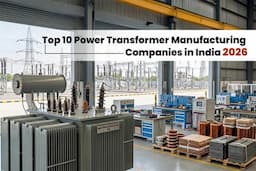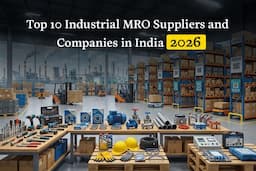Pipes are the unsung heroes of countless industries, providing a vital conduit for the transportation of fluids and gases. Among the diverse array of pipe options available, seamless pipes emerge as true champions, boasting exceptional strength, unwavering reliability, and peak performance. This blog will enlighten you by unraveling the key differences between seamless and welded pipes while exploring the fascinating realm of materials used in seamless pipe manufacturing.
Seamless pipe – What is it?
A seamless industrial pipe is a type of pipe that is manufactured without any welded seams along its length. It is crafted from a solid cylindrical billet of metal, which is heated and pierced to create a hollow tube. The billet is then elongated and rolled over a mandrel to reduce its diameter and increase its length, resulting in a seamless tube. Seamless industrial pipes are known for their superior strength, reliability, and performance compared to welded pipes.
Understanding Key Differences – Seamless and Welded Pipes
Seamless Pipes:
- Crafted without welded seams along their length, ensuring high structural integrity and reliability.
- By virtue of its design it is resistant to failure, especially under high pressure conditions.
- Smoother internal surfaces, reduces frictional resistance and enabling efficient flow.
- Can withstand pressures up to 20% higher than welded pipes.
Welded Pipes:
- Created by joining two separate pieces, resulting in welded seams that may create potential weak points.
- more susceptible to corrosion, especially in harsh environments.
- Cheaper to produce, but their strength and pressure resistance are comparatively lower than seamless pipes.
- Higher risk of failure under pressure compared to seamless pipes, making them less suitable for critical applications.
Materials Used in Seamless Pipes and Their Applications
Carbon Steel:
- Carbon steel seamless pipes offer excellent strength and durability, making them suitable for industries such as oil and gas, construction, and infrastructure.
- These pipes exhibit exceptional resistance to mechanical stress and corrosion, ensuring long-lasting performance.
- Carbon steel seamless pipes dominate the market, accounting for approximately 70% of the total seamless pipe production.
Stainless Steel:
- Stainless steel seamless pipes are known for their superior corrosion resistance, making them ideal for applications involving aggressive fluids or corrosive environments.
- They are widely used in industries like petrochemicals, pharmaceuticals, and food processing.
- Stainless steel seamless pipes constitute a significant portion of the seamless pipe market, with an estimated market share of around 20%.
Alloy Steel:
- Alloy steel seamless pipes combine the strength of carbon steel with additional alloying elements to provide enhanced mechanical properties, including high temperature and pressure resistance.
- These pipes find applications in industries such as power generation, aerospace, and automotive.
- The global demand for alloy steel seamless pipes is projected to grow at a CAGR of around 7% from 2021 to 2026, according to market studies.
Right Seamless Pipe for Your Project
- Consider the type of fluid or gas being transported: Different fluids and gases have varying chemical properties that require specific pipe materials and corrosion resistance.
- Assess temperature and pressure requirements: Determine the maximum temperature and pressure conditions the pipe will be subjected to, ensuring the selected seamless pipe can withstand them.
- Evaluate corrosion resistance: Analyze the environmental conditions and potential corrosion factors to choose a suitable material that can withstand corrosion and maintain longevity.
- Consult industry standards and seek expert advice: Adhere to recognized standards such as ASTM and API, and consult experts to ensure compliance and receive guidance on selecting the right seamless pipe for your project.
Seamless pipes offer remarkable advantages over welded pipes, including superior strength, pressure resistance, and smoother flow. The selection of the right material, such as carbon steel, stainless steel, or alloy steel, plays a pivotal role in achieving optimal performance and durability. By understanding the key differences and material options, you can make informed choices that meet the specific requirements of your projects. At Moglix, our inhouse, experienced industry consultants and piping experts work with customer procurement teams to understand their requirement and suggest objective, brand agnostics solutions that would put procurement teams challenges at the core. At Moglix you will find the most comprehensive range of certified seamless pipes, from all brands and all budgets. Know More




